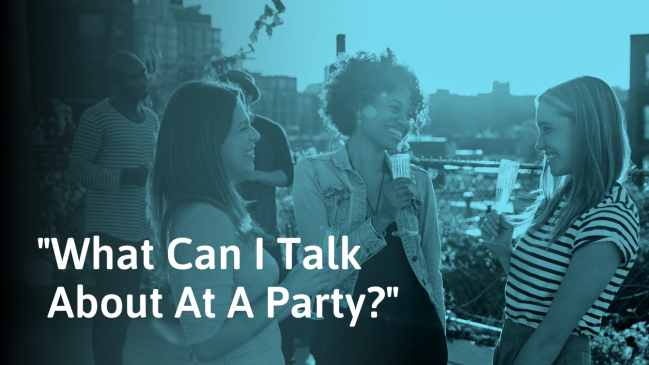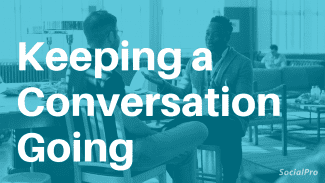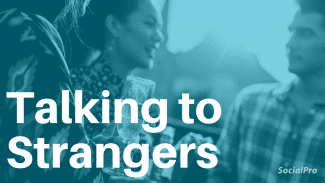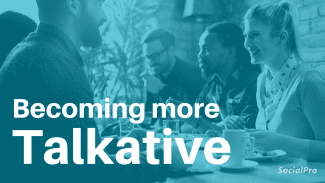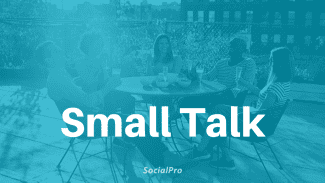When you get invited to a party, it’s normal to have some conflicting feelings. While part of you may be excited to go, another part might feel nervous or unsure. One of your main concerns may be that your conversations will feel forced or awkward. You might also worry that you won’t know what to talk about. While it might seem like you’re the only one with this problem, 90% of people experience social anxiety in their lives, and parties are a common trigger.[1][2]
This article will provide a comprehensive overview of how to navigate parties and large social events, including 15 things to talk about during a party and 10 strategies to overcome nervousness.
- Find out what kind of party you’re going to
- 15 things to talk about at a party
- 10 ways to enjoy parties even if you’re anxious
Find out what kind of party you’re going to
Not all parties are the same, so getting more information ahead of time about the party is one of the keys to feeling more prepared. For instance, conversation topics at an office holiday party, a small dinner party with your in-laws, and a wild New Year’s Eve bash at a club will probably be pretty different. Knowing what’s OK or polite to wear, bring, do, or talk about helps you know how to act at a party.[3]
Figuring out more about what kind of party it is will help you know more about what to expect, which tends to make people less nervous. To get more information about what kind of party it is, look for more details on the invitation, e-vite, or event website if this is provided. If not, consider reaching out to the person who invited you to ask questions and find out more about the event.
Here are examples of good information to get ahead of time about a party:[3]
- Confirming the day, time, and place of the party (and looking up the venue online)
- The reason for the party (e.g., a retirement party, celebration, or just a dinner party)
- Any clues about the “vibe” of the party (e.g., family-friendly vs, adults only, formal or casual)
- What to wear to the party (e.g., formal attire, business attire, casual attire, etc.)
- What to bring to the party (e.g., a gift for someone’s graduation or a dish to a potluck)
- Who else is coming and how many people are attending (e.g., whether you can RSVP online)
- Whether you are allowed to bring anyone else (i.e., a plus one)
What to talk about at a party
Having a list of interesting topics, stories, or examples of how to start an engaging conversation with someone can all help ease your pre-party jitters.[1][2][3] These make it easier to be social even if you’re not a party person. It can also help to have some ideas about how to approach someone at a party, how to join a group discussion, and how to start or end a conversation.[3]
Below are 15 conversation starters, approaches, and things to talk about at a party.
1. Find the host and greet them
When you first arrive, don’t wait too long to begin greeting people. First, look for the host and if they’re not busy, go up to them to say hi and thank them for inviting you. Next, scan the room and try to lock eyes with someone. If you’ve never met before, the best way to introduce yourself is to smile, approach someone, and introduce yourself.[4]
Even if you’ve met someone once or twice before, it’s still a good idea to re-introduce yourself. This way, you can avoid the embarrassing problem of forgetting someone’s same. Start with, “I think we’ve met once or twice” or, “I’m not sure if I’ve formally introduced myself” if you want to re-introduce yourself to someone. Handshakes are a safe bet in most meet and greet scenarios unless the other person initiates something else like a hug, a fist bump, or an elbow bump.[3]
2. Start slowly with friendly small talk
Small talk has a bad reputation as being superficial, boring, or pointless, but it’s actually an important social skill. Small talk functions as a form of social etiquette that shows you’re friendly and polite. It can also be an easy and simple way to approach someone and start a conversation, and sometimes even leads to deeper and more meaningful interactions.[4]
Examples of ways to make small talk include:
- Asking simple questions like “How’s your day going?” or “How have you been?”
- Bringing up ordinary and ‘light’ topics like the weather, work, or sports
- Mentioning a shared experience like “work’s been pretty light this week, huh?” to a coworker or, “this weather has been so dreary!” to someone
3. Ask questions to get to know someone better
Most people really like it when others show interest in them, so asking a question is a great way to start a conversation with someone at a party. Just make sure the questions you ask aren’t too personal or sensitive in nature, especially if it’s someone you don’t know really well.[3]
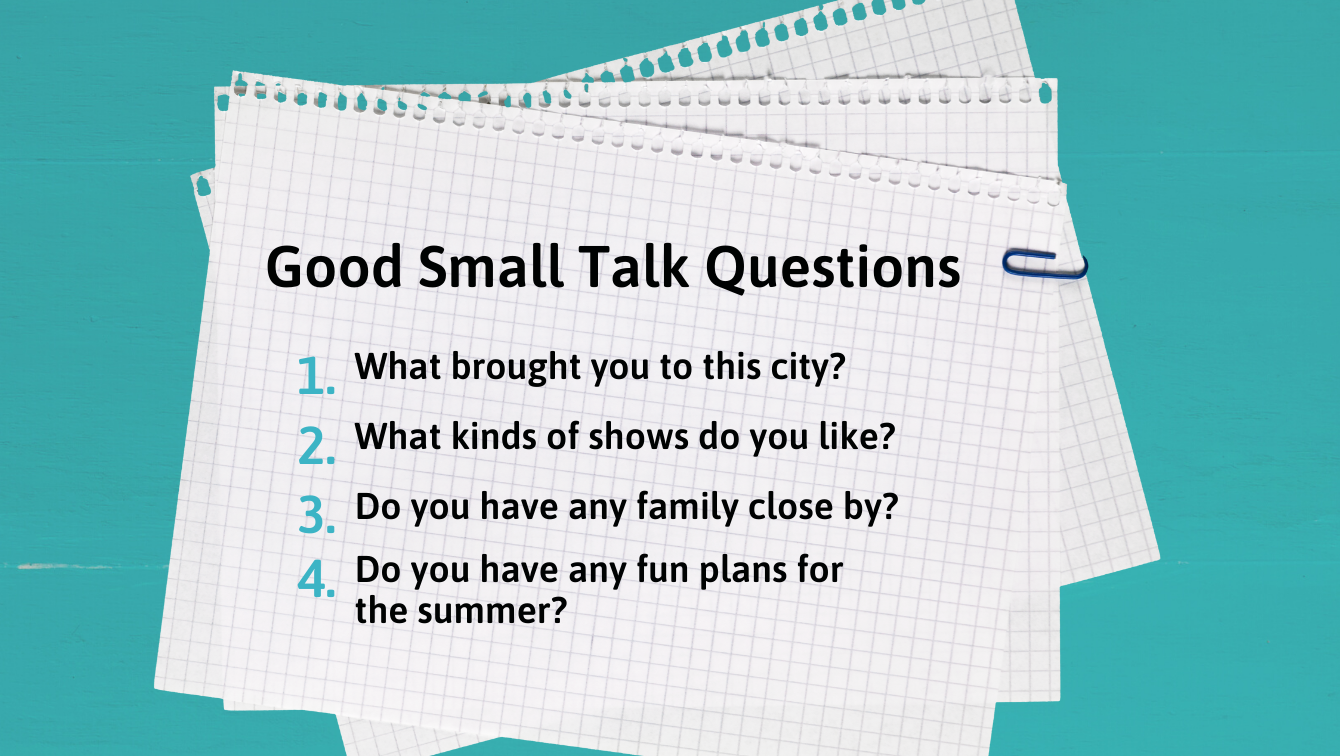
For example, don’t probe into topics about their romantic life or childhood unless they bring it up. Instead, aim for lighter, easier questions like:[3][4]
- “Are you working right now?” (better than “What do you do for work?” in case they’re in between jobs or not working currently)
- “Are you from here originally?” (better than “Where are you from?” which may offend some minorities or people who don’t speak English as a first language)
- “What do you like to do in your free time?” (better than asking questions that assume they have a specific interest like, “Do you like to work out?” which can also be offensive)
4. Ask people what brings them to the party
Another way to start a conversation with someone you don’t know at a party is to ask them how they know the host or what brings them to the gathering. You could start by sharing how you know the host and then asking them how they met. If it’s a corporate party, you could ask more about what department they work in to find a common connection.[3]
Finding a mutual tie can be an easy way to start a conversation at a party, and sometimes is an easier way to build a bond with someone. Talking about the mutual tie to the host can also lead to unexpected, interesting, or funny stories, leading the conversation in a great direction.
5. Use casual observations to start a conversation
Another way to start a conversation in a way that feels natural is to make a casual observation or ask a question about something you notice about someone. This can help to be an icebreaker at parties where you only know one or two people and can also be an in-road to a good one-on-one conversation.[1][4]
Here are some examples of how to use observations to spark up a conversation:[4]
- “That looks really good! What is it?”
- “I love the way she decorated her place.”
- “Your sweater is amazing. Where’d you get it?”
- “It seems like you guys are really close. How long have you been together?”
- “This place is really cool. I can’t believe I’ve lived here 3 years and never been here before!”
6. Ask follow-up questions to get to know someone
One of the best things about going to parties is that you can sometimes meet someone new that you really like and click with. After you’ve warmed up to someone, you may want to start a deeper conversation by asking specific questions to get to know them better.[1][4]
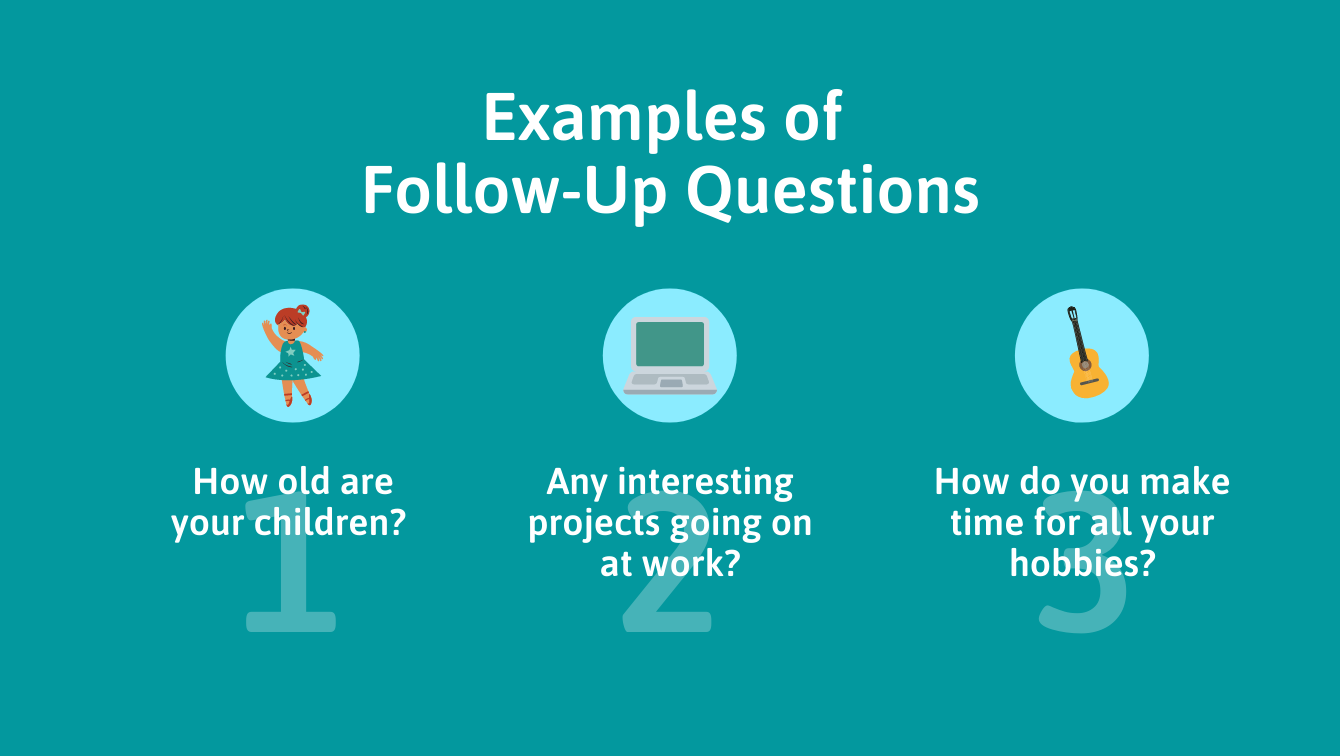
To use this approach, follow any leads they’ve provided and ask follow-up questions to show interest in them and learn more about them. Some examples of good questions to get to know someone are:
- “What do you like most about your job?” or “What are you interested in doing in the future” to someone who has talked about their job
- “What do you miss the most?” or “How has the transition been for you?” to someone who has recently moved, changed jobs, or had a major life change
- “What is that like?” or “Can you tell me more about that?” to someone who has talked about a hobby, passion, or interest you don’t know a lot about
7. Connect with people by finding common interests
Finding common interests, passions, and hobbies can be great conversation starters and can even be the start of a new friendship. It’s almost always possible to find things in common with someone, even when they seem really different from you.[4]
The key is to approach each person with an open mind instead of making snap judgments based on appearance or first impressions. Some examples of things you may have in common with people include:
- Music, shows, or movies you both like
- Activities, sports, or hobbies you enjoy
- Topics you find interesting or have studied in the past
- Types of jobs or work you’ve done in the past
- Lifestyle similarities like being single, a new parent, or a recent graduate
8. Open up and get more personal 1:1
While a rowdy group or wild house party might not be the right setting for this, some parties offer opportunities to branch off and have a solo conversation with someone. If you meet someone you click with at a party, consider finding a quiet corner or asking to sit outside to have a more private one-on-one with them.
During this conversation, you can go a little deeper by:[3][4]
- Sharing something a little more personal about yourself, like talking about your family, significant other, or personal history
- Being receptive and supportive to someone who opens up and shares something personal with you by showing interest and being empathetic
- Broaching more sensitive topics that lead to deeper conversations like talking about personal beliefs, long term goals, or things you’re passionate about
9. Tell a story or invite others to share their own
Stories can be a great way to spark interest and get people engaged in a conversation, especially at a party or in a group setting. Stories also are good ways to allow a person or group of people to get to know you without getting too deep or personal. For example, good stories can provide information to people about your personality, lifestyle, or sense of humor.

If you don’t know how to tell a great story, you can also invite others to share their stories by asking follow-up questions.[4] For example, you could ask someone who is talking about their 3-year-old about some of the funniest things their kid did. This is a great way to show interest in another person’s life, which can help them feel closer to you.
10. Give a sincere compliment
Complimenting someone can be a great way to form a good first impression and can also be a good in-road to a conversation.[4] The best compliments are sincere but not overly personal (which can make some people uncomfortable).
Compliments that are likely to be well received include:[3]
- Complimenting the host on the food, decor, or planning of the party
- Saying that you like someone’s outfit, hat, or something they cooked
- Giving positive feedback to someone who gave a toast or speech
- Making a positive statement about the party, setting, or people
11. Be polite to the host
Hosting parties involves a lot of planning, preparation, and work, so it’s important to be a good guest. For example, it’s always important to thank someone who invited you to a dinner party or a party at their house before you leave.
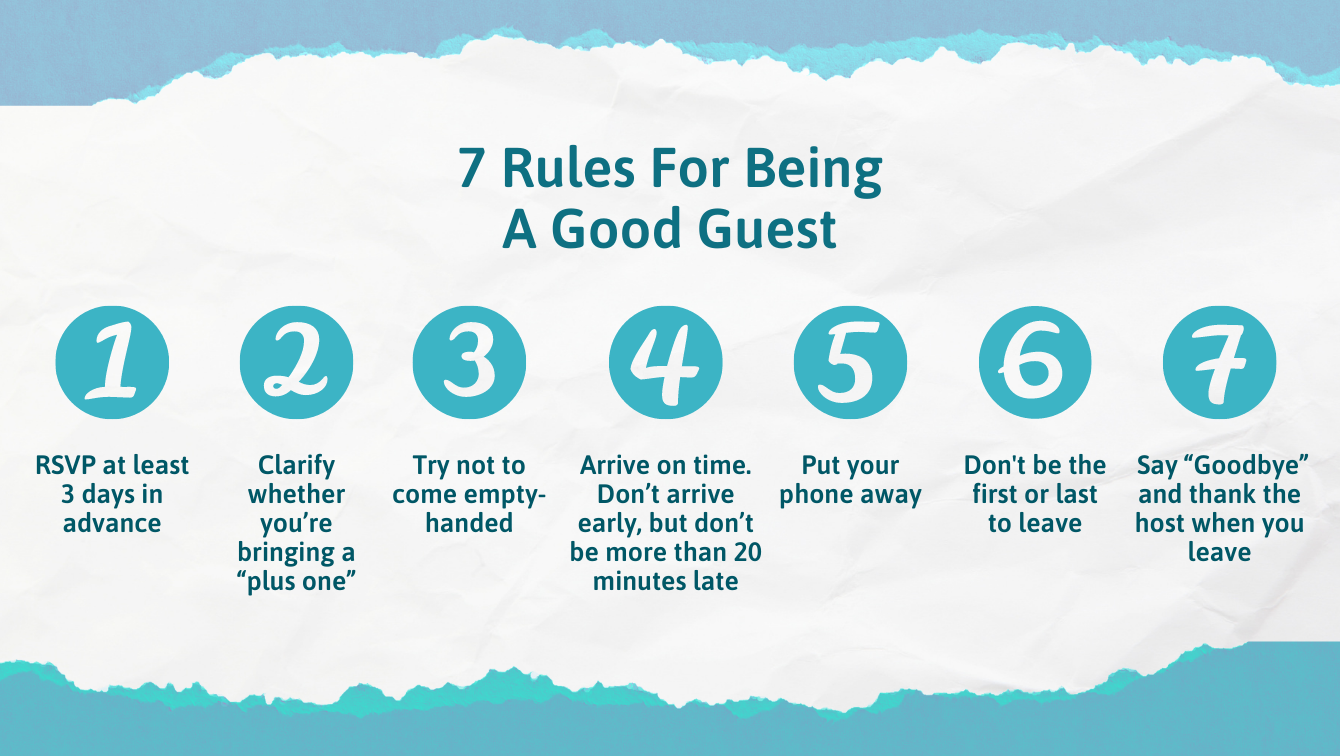
Also, consider some of the following tips to be a good guest:[3]
- Make sure to RSVP early to the host to accept or decline
- Verify whether it’s OK to bring someone else ahead of time
- Offer to bring something to the party
- Ask the host if you can help with set up, clean up, or other tasks
- Don’t multitask on your phone, especially during a 1:1 convo
- Don’t arrive too late or leave too early without an excuse
12. Start an intellectual debate
While some social events involve more small talk, mingling, or chatting, others are primed for deeper, more intellectual conversations. This tends to work best in smaller, quieter settings with smaller groups of people who work or study together and share a common interest or knowledge in a specific topic.[3]
These kinds of deep conversations are often preferred by people looking for more stimulating or interesting interactions.[5] For example, engineering students might debate about the newest Tesla tech, while a group of corporate bankers might love a deep dive convo into crypto or stocks.
13. Keep it short and sweet when mingling
If you’re at a corporate party where you’re expected to network and mingle, it’s a good idea not to get too deep in conversation with just one or two people. Avoid asking too many probing or open-ended questions, and don’t bring up big topics that are likely to spark a lot of debate or discussion.[3]
Instead, try to keep your interactions with people short and sweet by sticking to small talk or more superficial topics, including:[3][4][5]
- General exchanges that involve a hello, greeting, and polite question like “How have things been?” or “Everything going good with you?”
- Ending a conversation politely by saying “It was great talking with you,” “Nice meeting you,” or “Hope to chat again soon”
- Finding a natural “out” of a conversation that’s dragging on too long by saying, “Excuse me one moment, I’ve got to talk with Jim about something” or, “I’m going to grab some food. Nice chatting!”
14. Wait to “drop in” to a group conversation
When you feel anxious or unsure about how to join a group conversation, it’s usually a good idea to spend time listening and waiting for a natural chance to “drop in.” For example, if you approach a small group chatting about work or current events, don’t interrupt the conversation to introduce yourself or try to insert yourself into the conversation.[4]
Instead, just smile and take a few minutes to listen and get up to speed on what’s being discussed. It’s easier to find a natural way to join a conversation when you take time to step back and listen, rather than feeling the need to say something right away. This approach buys you time to think, relieves the pressure to “just say something,” and helps you contribute something more thoughtful to the discussion.[3][5]
15. Use icebreakers questions to get a group talking
Icebreakers, games, or even questions everyone takes turns answering can be great to spark group conversations. These kinds of activities are great for a small dinner party or get-together with friends at a bar because they make it easier to talk in groups. This helps to limit side conversations that might leave some people feeling left out or awkward.[1]
There are lots of great conversation cards and games on the market, but you can also use some of these questions:[4]
- What would be your top streaming recommendations to binge?
- If you won the lottery, what would you do?
- If you could switch lives for a week with anyone, who would it be?
- What skill or tactic would help you survive a zombie apocalypse?
- If you had to choose a completely different career path, what would it be?
- What activities, experiences, or places are on your bucket list?
10 ways to enjoy parties even if you’re anxious
While parties are supposed to be all about having fun, attending parties, being in large groups, and interacting with strangers are some of the most common triggers for people who tend to feel anxious in social situations.[1][2][6]
The problem is that feeling awkward, self-conscious, and uncomfortable at a party makes it almost impossible to relax and have fun.[1][6][7] If this is the case for you, there are some strategies that can help.
Below are 10 ways to overcome social anxiety so that you can actually enjoy attending parties rather than dreading them.
1. Avoid rehearsing conversations beforehand
It’s really common for people with social anxiety to mentally rehearse or practice conversations and small talk before a social event, but this rarely helps. In fact, these mental rehearsals tend to worsen anxiety while also making it harder to be genuine and authentic.[6][7]
Instead of rehearsing your conversations, try:[1][3][4][5]
- Having general topics in mind to discuss
- Letting others introduce topics and joining existing conversations
- Using social cues to find topics that interest others
- Trusting yourself to know what to say in the moment
- Laughing off an awkward or off comment to lighten the mood
2. Change the way you think about your anxiety
Sometimes, it can help to rename your nervousness as excitement. This is a simple and easy way to shift your mindset and consider more positive outcomes, rather than just worrying about bad things that might happen.[6][7]
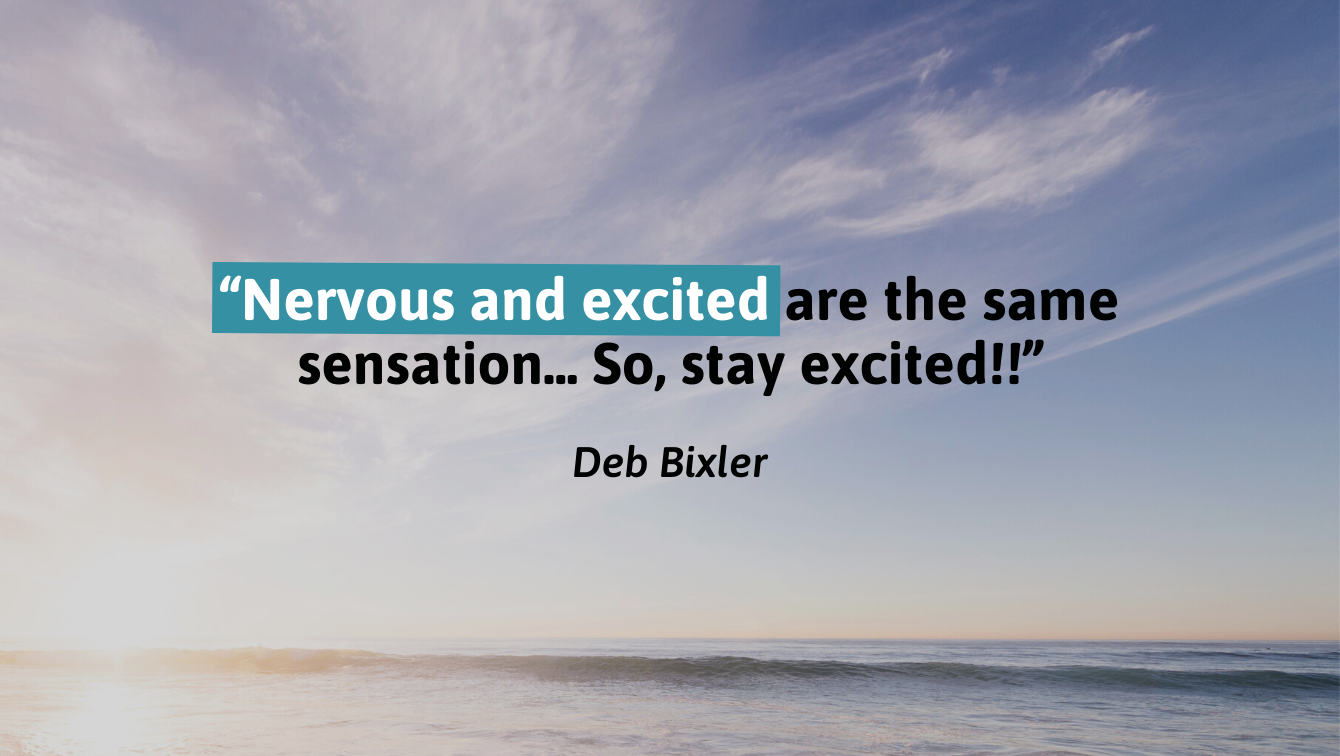
Here are some ways to reframe your nervousness as excitement:
- Try to think about some of the good things that could happen at the party
- Think of parties you’ve dreaded before but ended up really enjoying
- Consider some of the benefits of attending and the FOMO you might experience if you stay in
- Allow yourself to get excited about going and to look forward to it
3. Resist the urge to back out or cancel plans
At some point, you may have a strong urge to back out or text the host to make up an excuse about why you can’t go. While this might provide some momentary relief for your anxiety, it won’t help you feel less nervous the next time you’re invited out.[1][7] Also, being a serial no-show at parties can offend people, make you seem like a flaky friend, and make it less likely you’ll be invited again.
4. Focus on others instead of yourself
Self-consciousness and social anxiety go hand-in-hand for most people. This is why it can be really helpful to focus your attention on others instead of yourself.[1][6][7] If you notice yourself becoming too self-conscious, try to shift your focus to others by:
- Give others your full undivided attention when they speak
- Practice being a better listener by really listening to what people say
- Noticing changes in their expression, tone, and body language
5. Use grounding techniques to be more present
Grounding techniques can be the quickest way to de-escalate your anxiety, especially when it’s really high. Grounding is a simple technique that involves using one or more of your 5 senses to become more attuned to the here-and-now.
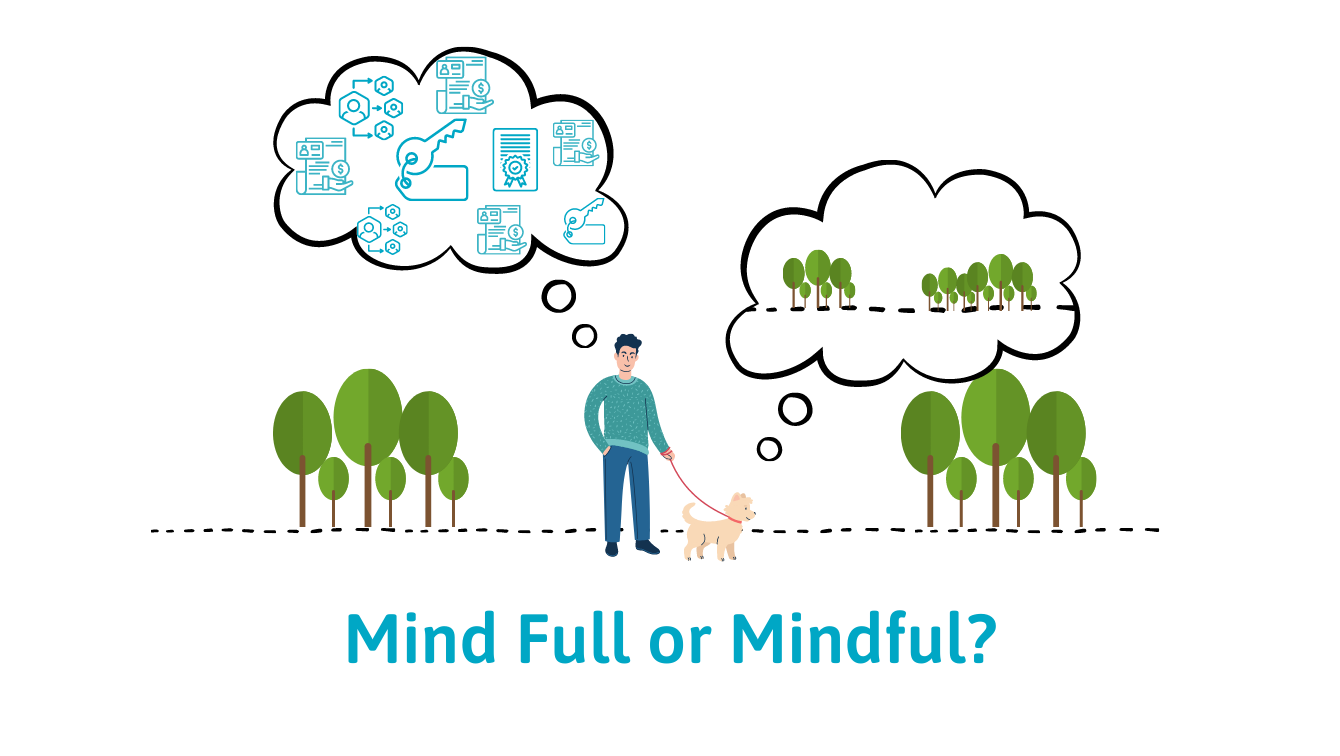
You can practice grounding by:
- Looking around the room to find one item to fix your gaze on or listing 3 things you can see in the room
- Becoming more aware of your feet on the ground or the way a chair or couch feels beneath you
- Getting a cold beverage to hold and focusing on the way it feels in your hand
6. Use the buddy system
If you’re feeling overstimulated at a party, approach people who are standing alone or off to the side, who might be feeling the same way.[3][4][5] This is even easier if there’s a familiar face or someone you know at a party. Having a friend or someone you feel comfortable around can make party going a lot easier, especially for people who are more shy or introverted.[3][5]
7. Set specific goals for the party
People with social anxiety may need to push themselves to be more social, and setting specific goals can help. Going into a party or social event with a goal can also put you in a mission mindset, giving you specific tasks to focus on.[3][4]
Some goals could include:[3][4][7]
- Improving conversation skills by talking to at least 3 people
- Meeting 3 new people and learning their names
- Finding something in common with each person you talk to
- Staying for at least an hour at a work event to make a good impression
8. Find a quiet place to decompress
People who are shy, introverted, or socially anxious can become more easily drained by social events, especially when they’re really loud or crowded. While it can be rude to duck out of a party too early, it’s totally OK to take a moment or two for yourself away from the crowd.[5]
Depending on the setting, this may be:
- A patio, back porch, or outdoor setting
- Another room with fewer people
- Your car (you can say you need to grab something)
- A bathroom where you can take a few minutes alone
9. Pay attention to others to pick up on social cues
Some people who struggle with social skills have a hard time picking up on social cues, which can make it hard to know how to interact with others. Paying attention to other people can be a good way to understand the etiquette or unspoken “rules” of a party or social event.[1]
For example, watching and paying attention to others can give you a sense of:
- When it’s time to eat or how much to drink
- Who at the party knows many of the other guests (and who doesn’t)
- When is an acceptable time to leave
- What topics are OK to discuss
- Who is most friendly and approachable
10. Make a list of what went well
Some people who struggle with social anxiety tend to ruminate or replay certain interactions after a party, especially the ones that were a little awkward.[7] If you know you tend to fall into this trap, try to interrupt this habit by making a mental list of good things that happened during the party.[6]
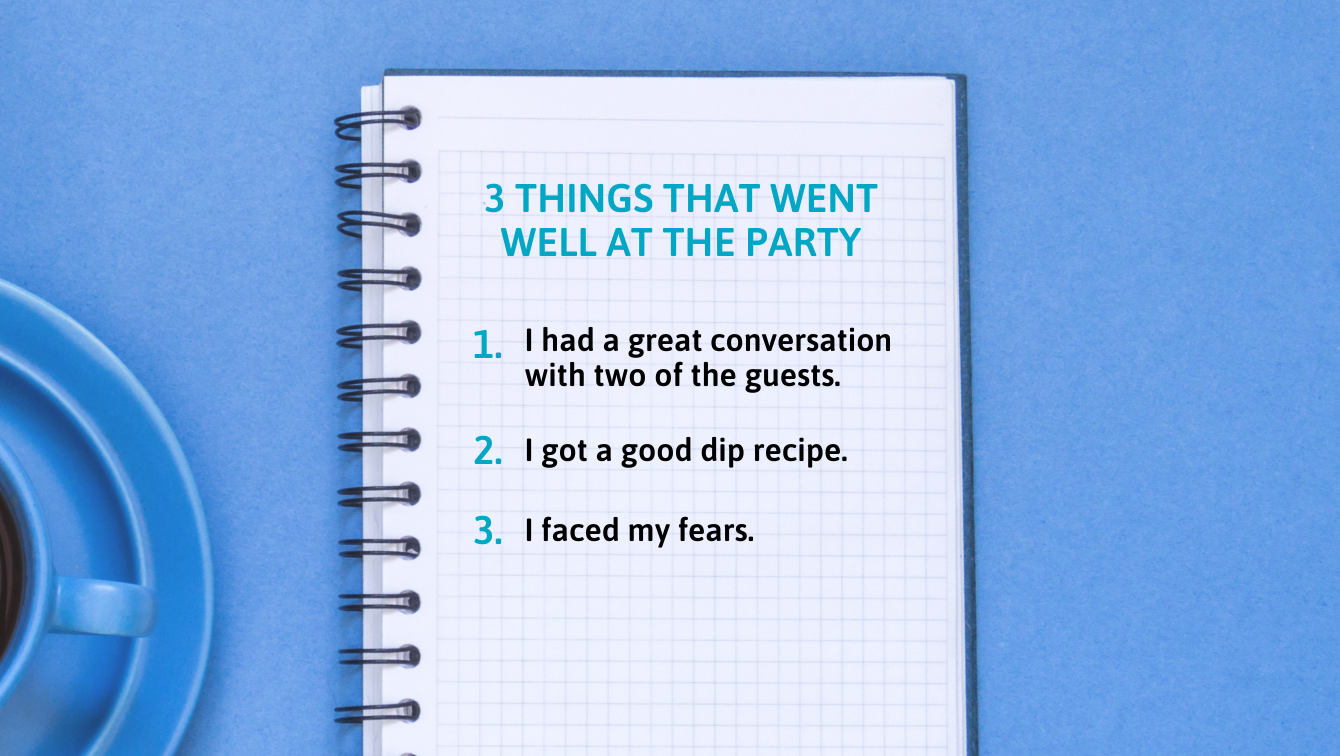
For example, you could think of:
- 3 reasons you’re glad you went
- One interaction you felt really good about having
- Things you learned you have in common with others
- One or more people you really clicked with
Final thoughts
One of the main worries people have about parties is that they’ll say or do something wrong, offensive, or embarrassing.[2] Knowing more about the kind of party it is can help you know what to expect and how to socialize. Some parties allow you to have deep conversations, while others involve shorter interactions, networking, and mingling.[3] Using some ideas from this article, you can feel more prepared and confident about what to talk about at a party.
Common Questions
1. What topics should you avoid talking about at a dinner party?
Some topics are known to stir up controversy, including religion, finances, politics, and even certain current events that people have strong differing opinions on. It’s best to avoid these topics with people you’ve just met and to change the subject if a discussion gets too heated.[3]
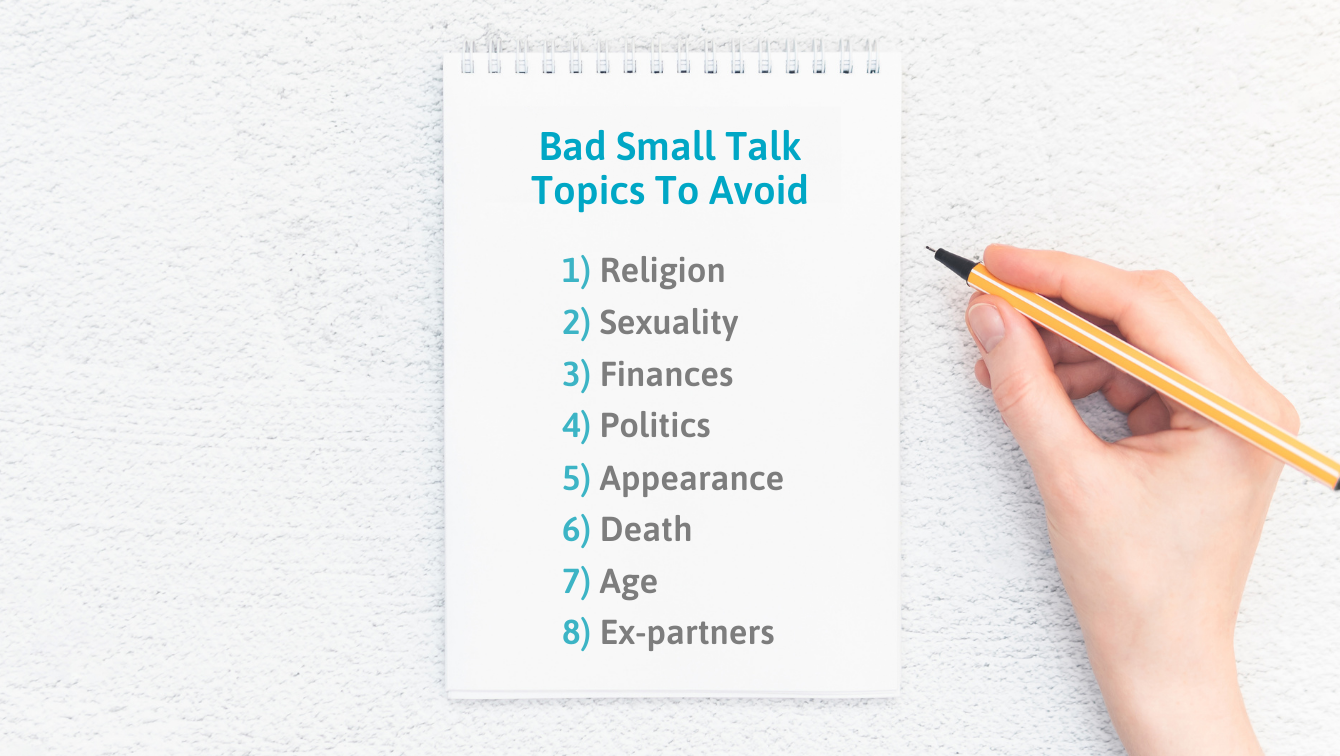
2. Is it rude to arrive late or leave a party too early?
There are some parties that have stricter start and end times (like weddings or certain corporate events), but most of the time, the times are somewhat fluid. Generally, it’s polite not to arrive more than 30 minutes late and to not overstay or be the last to leave.[3]
3. How do I approach people I am attracted to at a party?
Talking to or approaching girls or boys you’re attracted to makes a lot of people nervous.[2] Generally, it helps to use a normal, friendly approach instead of worrying about finding good ‘pick-up lines’, which might offend some people.
